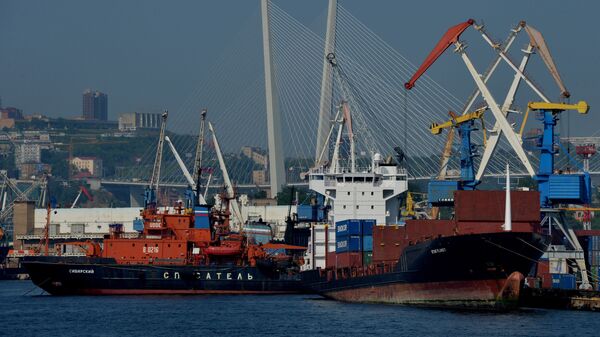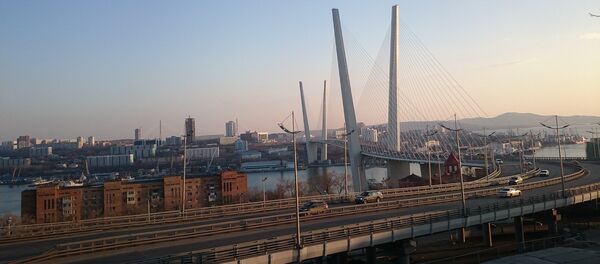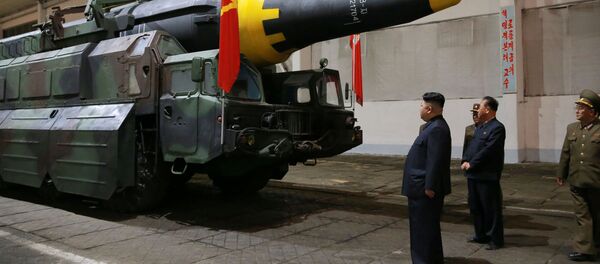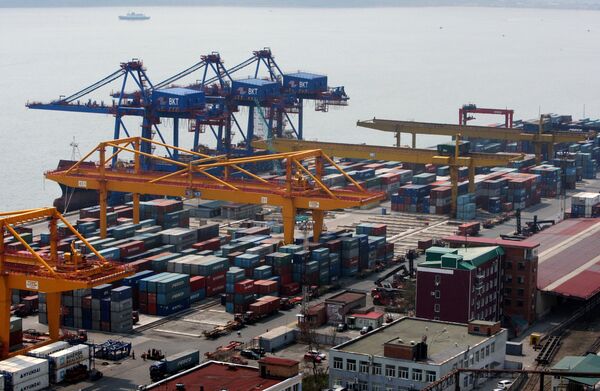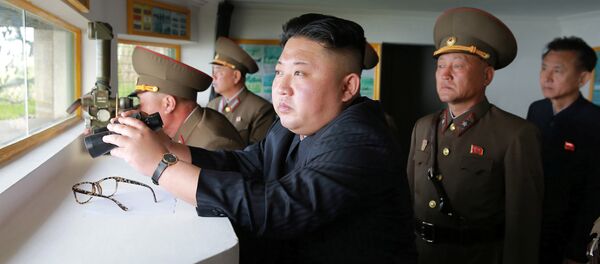On May 18, North Korea's vessel Man Gyong Bong arrived in the Russian port of Vladivostok. While Russia and the DPRK already have a railway connection, the Rajin-Vladivostok route has become the first service between the countries.
"It took about nine hours [for Man Gyong Bong] to cross the sea," Khrolenko wrote, "It is planned that the ferry will transport Chinese tourists (from Hunchun) to Russia every week, Russian tourists to Rajin and North Korean workers to Vladivostok and back (from May 25)."
Previously, the US House of Representatives voted overwhelmingly for expanding sanctions against Pyongyang. The bill bars vessels owned by the DPRK or by countries involved in trade with Pyongyang from operating in American waters or docking at US ports.
In accordance with the legislation, those countries which hire North Korean employees would be subjected to sanctions under the International Emergency Economic Power Act.
Khrolenko remarked that Congress even went so far as to maintain special control over Russia's Far East ports of Vladivostok, Nakhodka and Vanino, as part of the measures.
Meanwhile, on May 16 US Ambassador to the United Nations Nikki Haley urged other countries either to exert more pressure on North Korea or choose between Washington and Pyongyang.
"You either support North Korea or you support us, you are either with North Korea or not," Haley said as quoted by Bloomberg.
"The free port of Vladivostok has already responded [to the US sanctions]," Khrolenko pointed out, referring to the ferry service linking North Korea and Russia.
The journalist noted that Russia is complying with the UN Security Council's Resolution 2270 on restrictions against North Korea inked by President Vladimir Putin in December 2016. However, that doesn't mean that the US has the right to impose its own police control on sovereign states, he added.
"No country and no international organization have authorized the US to monitor the implementation of UN Security Council resolutions by police or 'cowboy' methods," Khrolenko wrote, adding that the bill supported by the US Congress contradicts the principle of sovereignty and calls into question international economic activity.
He added that special US services can obtain the right to inspect ships and aircraft that have visited North Korea during the last 365 days.
Predictably, Washington's unilateral initiative prompted criticism from Russian politicians.
Commenting on the issue, Konstantin Kosachev, the head of the Federation Council's Foreign Affairs Committee, said that de jure the bill's realization means "forced inspection of all vessels" by US warships. Such a scenario amounts to a declaration of war, Kosachev noted.
However, according to Khrolenko, the US congressmen's plan to maintain control over the countries' trade is nothing but wishful thinking.
"It is impossible to control the ports and economic activities of independent states from Washington," the journalist noted, "As for the Far Eastern ports of Russia, the Americans may only conduct remote monitoring [of the region]."
"The US can also obtain information by using space reconnaissance means, remote hacking of the ports databases or agents in the field. Or they can simply inspect any vessel in neutral waters… Everything is possible, but taking into account the total volume of shipping and the capabilities of the Navy of the aforementioned countries [Russia, China, Iran, Syria], such control appears to be too dangerous," he elaborated.
